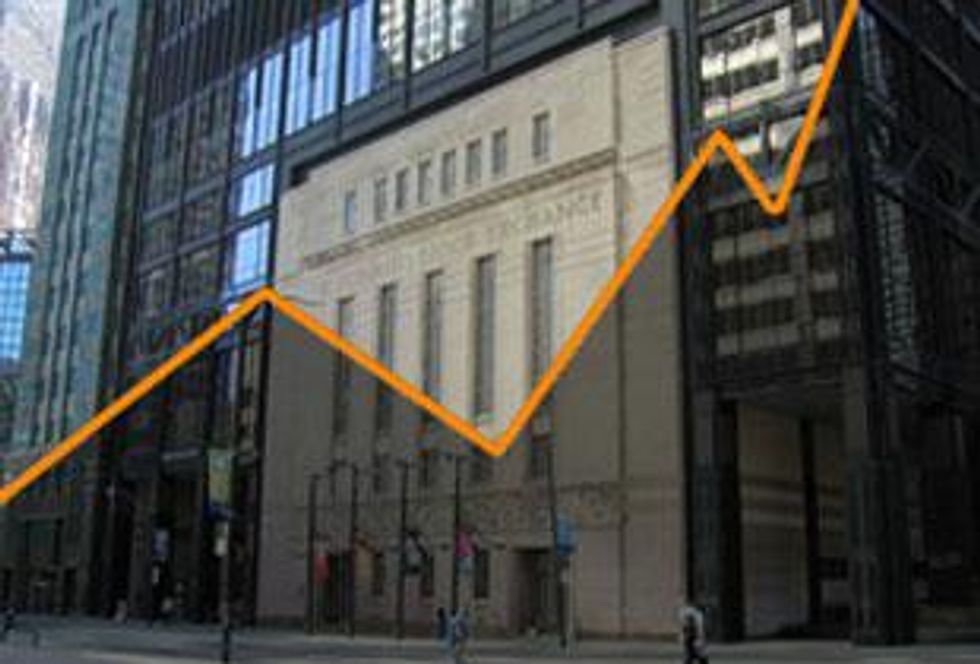We are pleased to introduce a new weekly series of precious metal fund commentaries and analyses. The primary objective for these initiatives is to provide informative online resources for investors about some investment opportunities for individuals that may be interested in risk diversification, economies of scale and increased liquidity.
Last month, a number of exciting new tools were introduced within the Resource Investing News Network including the Uranium Stock Index, the Silver Stock Index, and of special interest to gold investors and regular followers of Gold Investing News, the Gold Stock Index. We are confident that these investing resources will enhance the content across the network and continue to demonstrate our top quality editorial commitment to add value by further expanding tools and applications for our readership. This week we are pleased to introduce a new weekly series of precious metal fund commentaries and analyses.
The primary objective for these initiatives is to provide relevant, dynamic and informative online resources for investors about some investment opportunities for individuals that may be interested in the diversification of risk, economies of scale and increased liquidity. While they will not produce the same spectacular returns as a single well chosen junior, some of which delivered better than 5 thousand percent and as much as 20 thousand percent returns in the “Mania phase” of the last secular gold bull market, funds offer an interesting set of characteristics which may appeal to some investors.
Partial risk disclosure
Most gold investors may already be aware of the various risks involved in buying mutual funds. These investment vehicles can experience market fluctuations and sometimes provide returns below the overall market. Also, the advantages gained from mutual funds are not free: many of them carry loads, annual expense fees and penalties for early withdrawal. In the past, Gold Investing News has briefly highlighted exchange traded funds (ETFs) and the relevant aspects of note for these types of products; however, the new series will focus on mutual funds and include industry context and commentary from key members of the analyst, portfolio management, and sales professions.
Investment benefits
Potential selling features for certain investors, dependant on individual circumstances and dynamic situational contexts, such as risk appetite and investment horizon include:
Diversification
Diversification involves the mixing of investments within a portfolio and is used to manage risk. Investors that have observed substantial returns on a concentrated group of junior stocks may wish to take some of the proceeds into a more diversified precious metals portfolio of stocks, which could still offer concentrated exposure to the asset class, but may limit currency, capitalization and individual security risk.
Economies of scale
If an investor is purchasing only one security at a time, the transaction fees will be relatively large. Mutual funds are able to take advantage of their buying and selling size and thereby reduce transaction costs for investors. When an investor purchases certain mutual funds, they are able to diversify without the numerous commission charges. This does require consideration, depending on how the securities are acquired; however, to replicate the underlying assets of a mutual fund would most often generate more transaction fees than buying a retail mutual fund. With mutual funds, an investor can make transactions on a much larger scale for less money.
Divisibility
Many investors may not wish to allocate the capital requirements to buy round lots of securities. In most instances, investors can purchase mutual funds in smaller denominations, ranging from $100 to $1,000 minimums. Smaller denominations of mutual funds provide mutual fund investors the ability to make periodic investments through monthly purchase plans while taking advantage of dollar-cost averaging.
Liquidity
Another advantage of mutual funds is the ability to get in and out with relative ease. In general, an investor is able to sell mutual funds in a short period of time without there being much difference between the sale price and the most current market value. However, it is important to watch out for any fees associated with selling, including back-end load fees. Also, unlike stocks and ETFs, which trade any time during market hours, mutual funds transact only once per day after the fund’s net asset value (NAV) is calculated.
Last year, the top performing classification for mutual funds was the precious metal funds with an annualized performance averaging approximately 52 percent on the year, according to Morningstar. The next best comparative fund categories were the natural resources and domestic small capitalization equity funds. With gold mining companies now representing 12 percent of the S&P / TSX Composite Index and 15 percent of the Canadian Small Cap Index, investors will be keenly aware of the concentration risk. However, with the price of physical old appreciating over 29 percent on the year, many of the major gold mining stocks have not reflected the considerable gain of the underlying asset values on their balance sheets.






